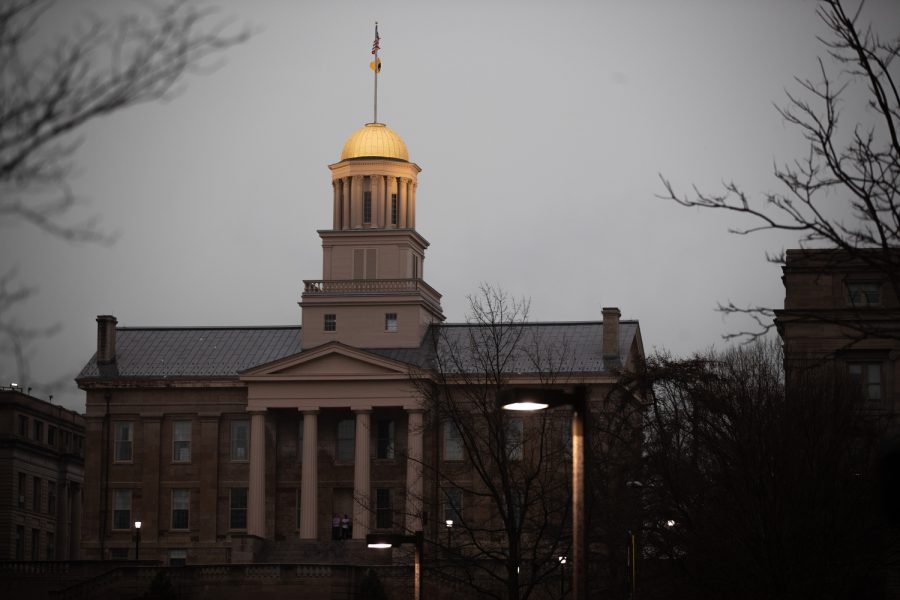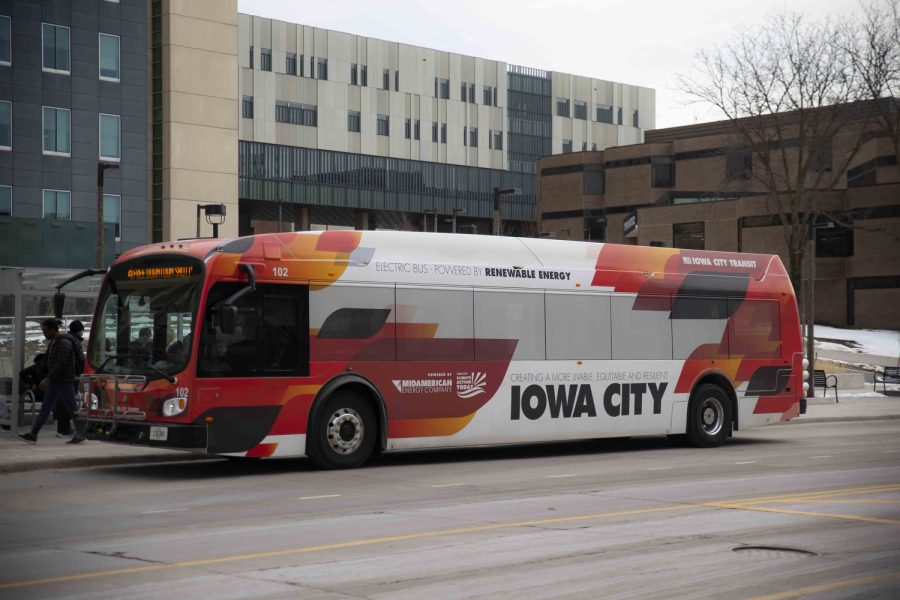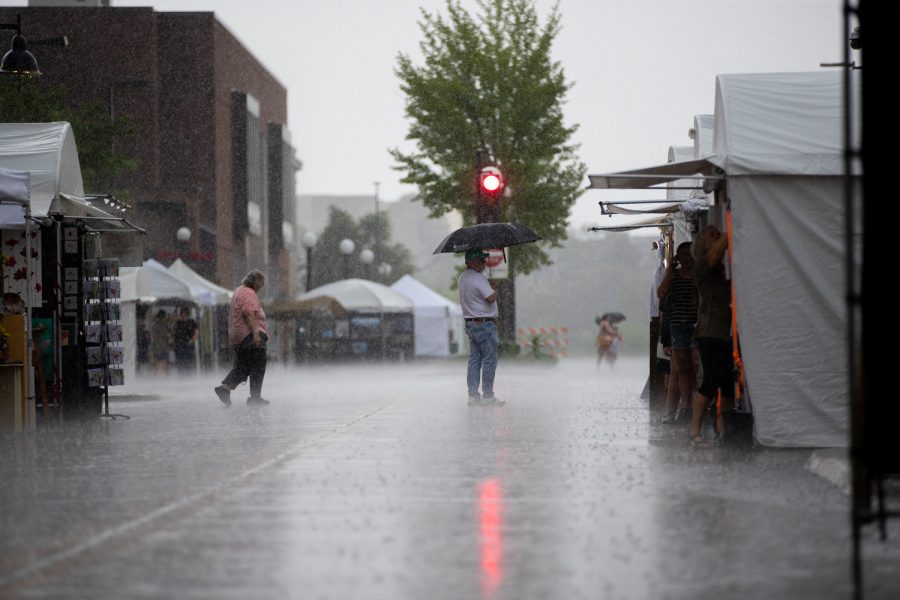Men and women marched throughout the streets of downtown Iowa City Tuesday, hoisting colorful signs in the air and chanting such phrases as “Two, four, six, eight, no more date rape.”
The Take Back the Night event has taken place in Iowa City since the mid-1970s, when women were beginning to speak out about their attackers in a more public forum. The Rape Victim Advocacy Program and the Women’s Resource Action Center are involved in planning for the annual event, which is always at the end of April — national Sexual Assault Awareness Month.
“I am indeed a survivor,” said UI sophomore Rai Tokuhisa, who has been involved in the Iowa City Take Back the Night for three years. “I think because we’re in a liberal community women might be more empowered to speak out, but rape and incest is definitely an issue and just as common as other places.”
Nationally, 207,754 victims are sexually assaulted each year. In Iowa, according to the 2012 Domestic Violence Census, a reported 737 victims were served in one day.
This year’s event included a rally on the Pentacrest and a march of solidarity through downtown, and it concluded with victims speaking about their personal experiences.
RVAP Executive Director Karla Miller said this is one of her favorite events in April because it serves as a public forum for victims to share their stories to the public.
“Personally, when I attend Take Back the Night, it re-energizes me,” Miller said. “I work with sexual-abuse and sexual-assault victims every day, but when you go to an event and take a step back, you see not just the problem these victims face but the [victims’] strength to live and to heal.”
Linda Stewart Kroon, the director of WRAC, said the event has expanded its audience in the past three years beyond reaching out to women.
“We always hope to reach as broad as possible and try to encompass a variety of people,” she said. “We’ve seen reports that sexual-relationship violence happens to women the most often, if the reports are correct. But we know it’s something that isn’t restricted to them.”
The first Take Back the Night rally was held in 1975 with the women’s movement in Philadelphia, and a rally in Iowa City followed shortly after. The rally is now in dozens of cities across the United States, as well as internationally.
Jacob Oppenheimer, the coordinator for the Men’s Antiviolence Council, said men need to speak out about their experiences, and society needs to change what is considered as “masculine.”
“As a guy, as someone who considers myself vaguely masculine, and as a fraternity member, I want to say no more,” the graduate student said. “Some people forget that men do have a voice, and they are in charge of this conversation.”
One in five women are sexually assaulted in their lifetime.
Although many years have passed since the first Take Back the Night, Miller said the need for it now is just as great as it was back then.
“For people to speak out about it in the ’70s, that was pretty groundbreaking and brave,” she said. “They were standing up not just to their individual offenders but to the culture that makes it OK.
When you do that, the problem was impossible to squelch or suppress. When the awareness was raised, it was very clear victims were responding normally to an abnormal experience.”
Kroon said Take Back the Night will continue to occur in Iowa City as long as the issue of sexual assault does as well.
“[Take Back the Night] is important because the violence hasn’t stopped,” she said. “We’re going to continue to raise awareness in the community. We’d be more than happy to stop the event if the problem stops.”






